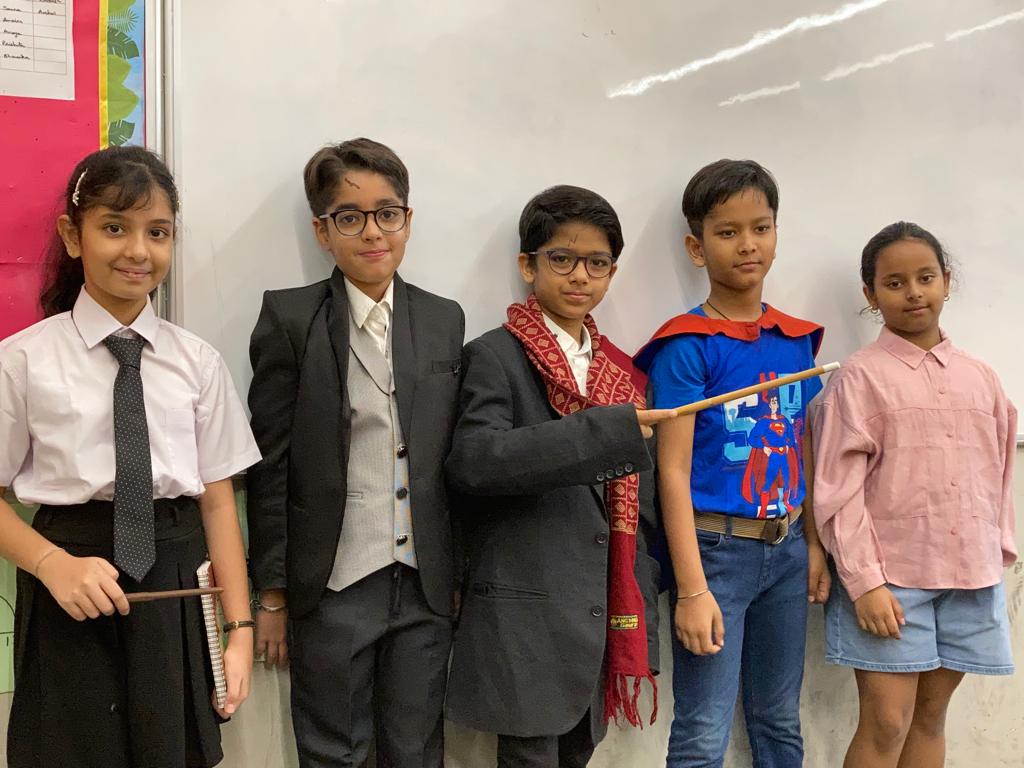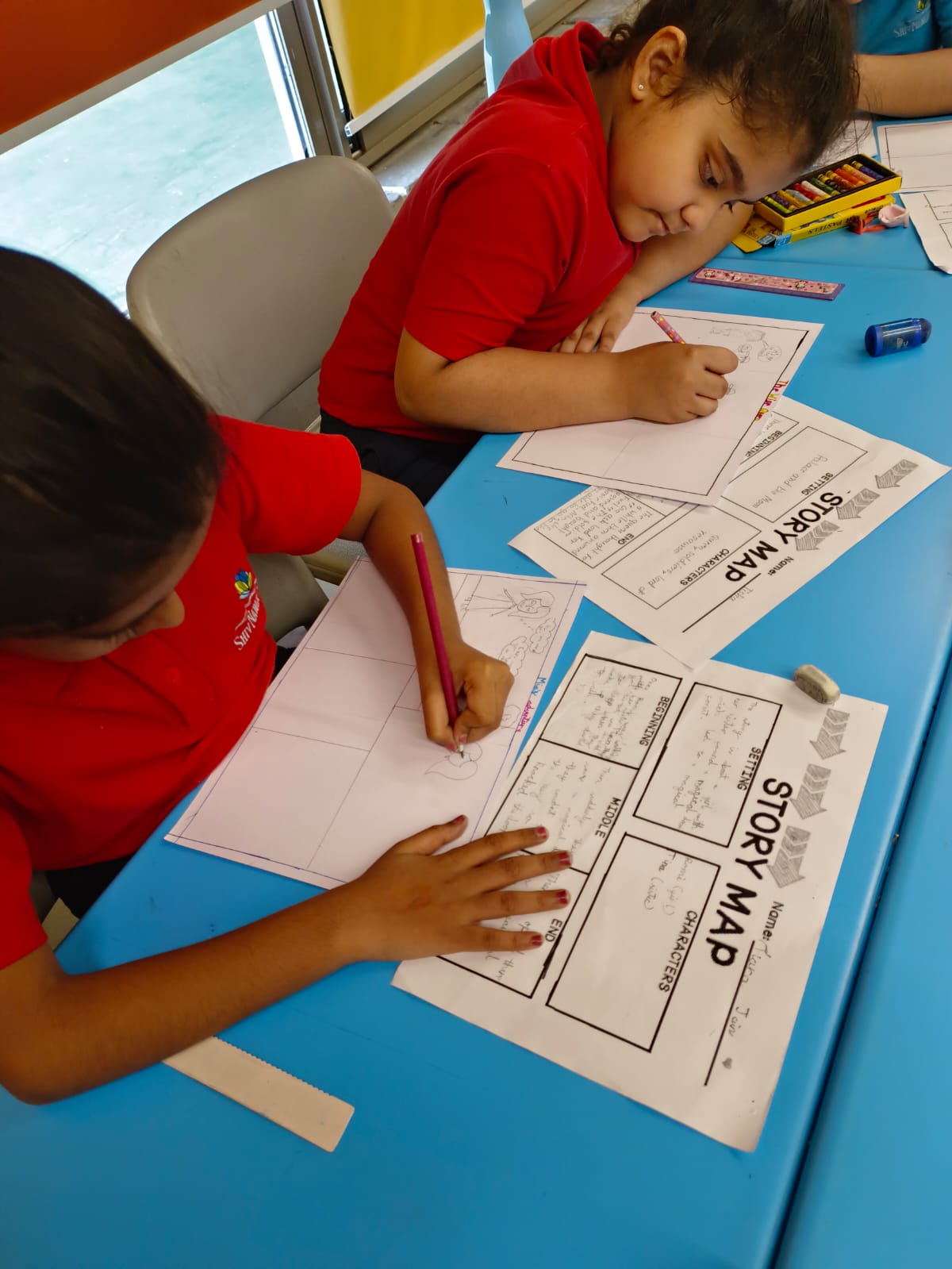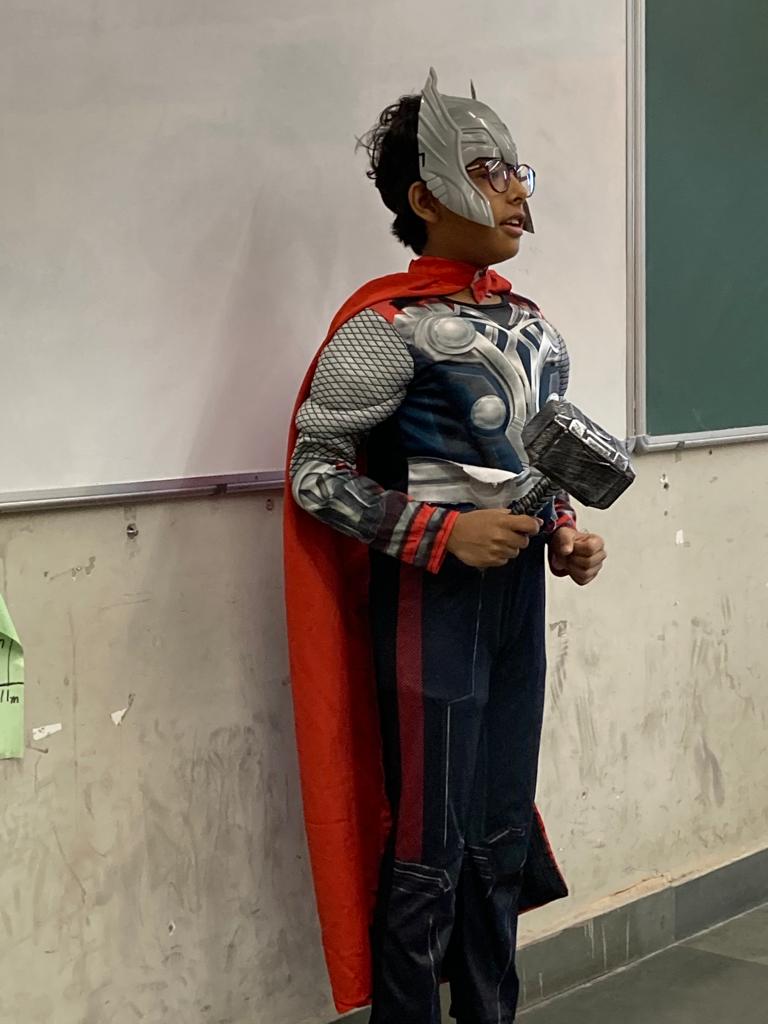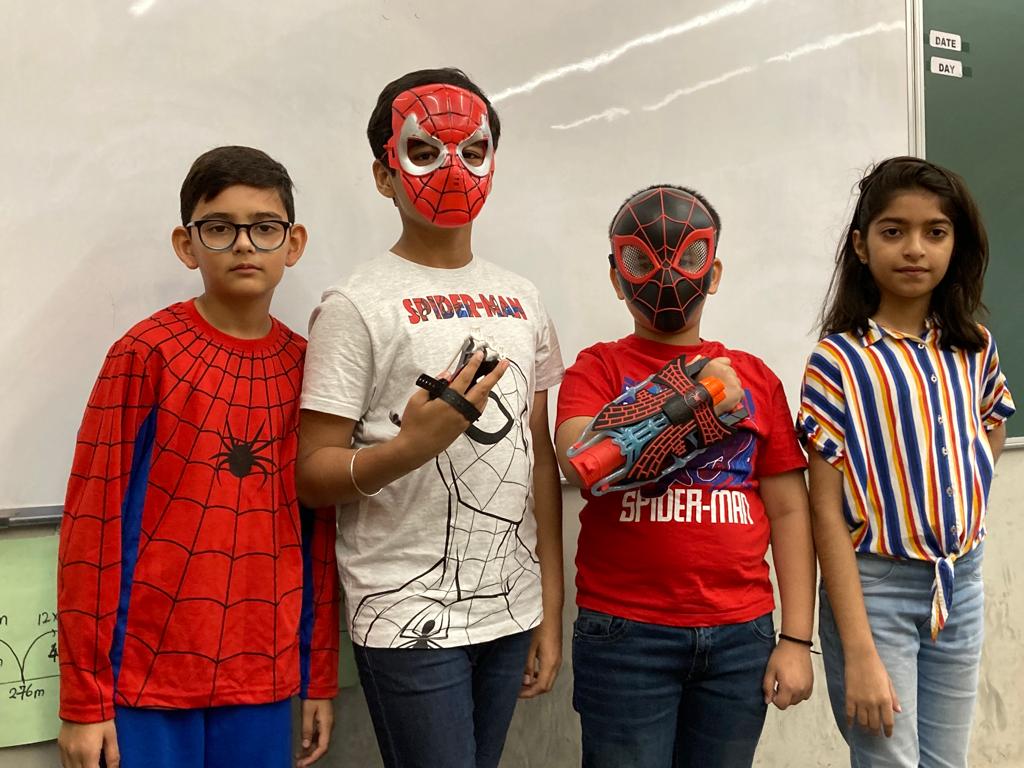IBCP Confluence 2023 - The New Era of Education
Mrs. Anju Wal, Director Principal Shiv Nadar School Faridabad, participated as a keynote speaker on the panel at the School Leaders Summit IBCP Confluence on 12th October 2023. The discussion primarily focused on the significance of the International Baccalaureate Career-related Programme (IBCP) in fostering student autonomy and preparing them for diverse career opportunities. Mrs. Wal highlighted the practical application of the IBCP framework within our school, emphasizing its role in nurturing well-rounded individuals equipped for the demands of the contemporary workforce.
The event fostered valuable insights into student-centric education and innovative methodologies, advocating for a student's holistic development aligned with the demands of a globalized world.
Intersect 2023: Promoting School Entrepreneurship
Mrs. Anju Wal, Director Principal Shiv Nadar School Faridabad was invited as a speaker at Intersect - The Union between Industry and Academia by Masters' Union on September 30, 2023. She served as a panelist in the discussion titled "Promoting Entrepreneurship in Schools." The event successfully bridged the gap between education and industry, fostering valuable insights and connections.
Role of CBSE’s multilingual initiative in promoting linguistic diversity in education
The Adrinka writing system of the West African Akan people has a symbol of a mythical bird flying forward with its head turned back. Termed Sankofa, it is understood as the importance of knowing our past to forge our future. Language, as a repository of our pasts and an expression of our futures, is akin to that bird, losing sight of neither. Our language of learning is an intrinsic tool which shapes our view of the world. It is not merely a medium of instruction or another subject to quantify through assessments. Rather, it is the link which connects each child to their home, their land, their histories and who and what they become.
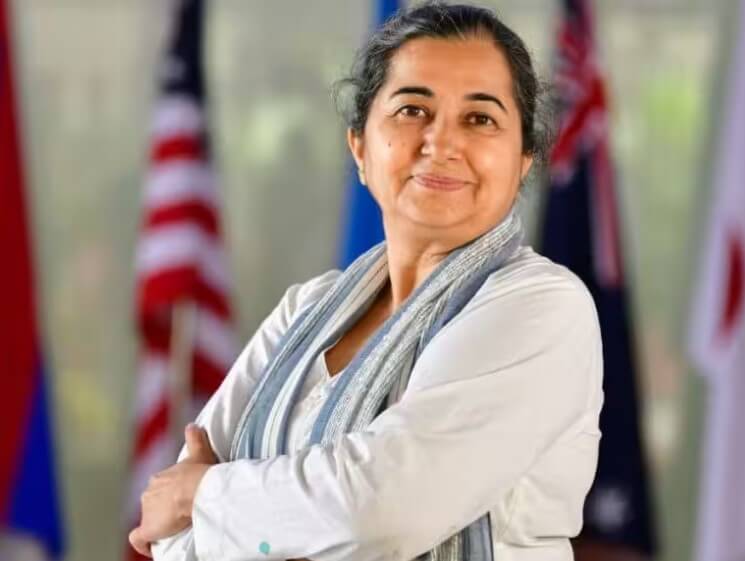
By Shashi Banerjee
India’s rich cultural heritage and linguistic diversity are pivots to guide our generations forward. Multilingualism has been a hallmark of that for centuries, a tapestry with myriad ways to weave the threads of our existence. From saints traversing with their songs to craftspeople and traders navigating with their goods; from languages born here and which travel the world to languages borrowed and moulded as our own; each loop connects the past with the present. A multilingual understanding is the vivid dye which colours our experiences of cultures, cuisines, music, art, festivals, thought and perspective.
As an educational policy in India, multilingualism has taken different avatars, be it the three-language formula of ‘68 or the multilingual classroom as a resource in itself of NCF ‘05. The National Education Policy 2020 and CBSE’s recent initiative to promote linguistic diversity are continuations of these considerations to understand our linguistic diversity as an asset, not a liability. It is integral to these policies, and their implementation that language is not just relegated to an instructional medium. It is an immersive experience to provide learners with a toolkit to explore the multifaceted human experience.
We have the unique opportunity to nurture languages from five distinct linguistic families: Indo-Aryan, Dravidian, Austro-Asiatic, Tibeto-Burman, and Andamanese. Our history and current geopolitical realities have also given us English, the knowledge of which has helped Indians become global leaders. In this forest, then, which tree stands supreme? The one with the most branches? Or the one with the most speakers? Or one seen as least offensive because it is not ours, to begin with? Perhaps no tree should stand supreme; all roots intermingled to hold the earth stronger together.
The new policy is a step toward dismantling hierarchies in our understanding of language. Interconnections are the backbone of human civilisation and language its veins. Each child’s mother tongue should be accepted and supported through pedagogy, curricula and by allowing the learner to explore and express in their own language. There is ample research demonstrating that multilingualism supports linguistic development as well as core competencies for children’s brains to develop stronger and more proficient. Beyond academic and intellectual aptitude, a multilingual experience nurtures resilience and adaptability. It flows from heritage yet ebbs and engirdles to forge with the times be it communicating with machines or evaluating how systems of language can perpetuate injustice and violence.
Empowering the learner with a varied means of expression in all aspects of linguistic strengths in one or two languages should not be considered antithetical to immersion in different languages and knowledge systems. Language is more than a written or spoken word; it is articulated just as much through dance, gesture, art, to name a few. Learning language need not be confined to a burden of content that gets quantified quite without the purpose of inculcating a love for languages. It should acknowledge that language can give us our sense of identity, in knowing and expressing in our mother tongue. It can also fill us with wonder in understanding and listening to people from diverse cultures and contexts. And it is at this intersection of past and present, one and many, us, and them, that multilingualism resides: to empower, empathise and enable change.
The Author is Director, Education, Shiv Nadar School.
The article was published in Financial Express
Sep 28, 2023 by Shiv Nadar SchoolShiv Nadar School Podcast
Episode 1: Embracing Lifelong Learning
In the inaugural episode, 'Embracing Lifelong Learning" watch Ms. Shashi Banerjee, Director of Education at Shiv Nadar School debunking myths related to learning. She emphasises the importance of nurturing curiosity, enabling young learners to develop problem-solving skills for the real world and helping them embark on a journey of self-discovery.
Sep 29, 2023 by Shiv Nadar SchoolNurturing Ethical Excellence Beyond the Classroom
The decision to eliminate invigilator assessments in Middle and Senior School aligns closely with the core values of Shiv Nadar School.
At its foundation, the school places a strong emphasis on fostering integrity and ethical conduct among its students. This transition reflects the school's commitment to instilling these values by entrusting students with the responsibility of upholding honesty during Assessments. It exemplifies the belief in the school's students to act with integrity and integrity in all aspects of their academic journey.
It underscores the school's steadfast dedication to nurturing students who not only excel academically but also internalize and embody these values, extending their influence far beyond the confines of the classroom.
Shiv Nadar School Forest Inauguration
Nestled within the North Block boundary area, the "Shiv Nadar School Forest" project, in collaboration with 'Give Me Trees,' is a testament to our green vision that unfolds over two transformative years. With dedicated teachers, eager students, and engaged parents, we are crafting something truly exceptional. The mission is to transform this space into a captivating forest, complete with tranquil water bodies and inviting walker's paths, all while planting an impressive ensemble of 8000 evergreen trees. This project's distinctiveness lies in its unwavering commitment to sustainability. It embodies our dedication to safeguarding critical groundwater resources by creating a self-irrigated green belt independent of underground water sources.
The diverse selection of trees, including Moringa, Tamarind, Guava, Mango, Bougainvillea, Jungle Jalebi, Semal, Bottle Brush, Gulmohar, Jarul, Mogra, Lavender, Lal Kaner, Callaindra, and many more, adds to the richness of this project.
"Literature speaks the language of imagination..." - Northrop Frye
It is said that language and literature opens the door of imagination and allows us to discover the extraordinary out of the ordinary.
The ‘Literary Week’ in grades 3-5 was organised from 11th to 15th September to foster love and appreciation of literature and language. Children engaged in a wide range of activities with tremendous energy and zest through the week. Hindi Diwas was also marked on the 14th of September, all the students participated in various interesting activities throughout this week.
The week kick-started with ‘Adjective Bonanza’ across grades 3 to 5. Children brought T-shirts and wrote adjectives on each other’s T-shirts describing each other in Hindi and English. The energy and vibe was positive and zealous as students sported those T-shirts proudly the entire day.
Grade 3 students engaged in enjoyable tongue twisters, which served as an introduction to the concept of alliteration. They participated in another captivating activity, they were provided with chits containing sentences in which alliteration was intentionally scrambled. The students' task was to rearrange these chits to construct coherent and meaningful sentences. The students were involved in the creation of their own alliterative sentences, incorporating adjectives. Students learnt the elements of a story in Hindi, wrote their own stories and presented them in groups. It was an intense and engaging exercise for them.
Grade 4’s theme was ‘comics’, children engaged in understanding the entire process of creating one. They studied several comic strips to elicit and gain an understanding of its elements such as panels, speech bubbles, thought bubbles, gutter, the kind of language used in a strip etc. The comic strip they finally created reflected their thought process and clear understanding. Word games like crosswords, riddles spread throughout the week further helped in enhancing their love for the language. They created stories based on ‘dohas’ by making colourful comic strips digitally to present their stories.
Grade 5 centred around the theme of self-composed poetry and poem recitation both in Hindi and English. The week aimed to not only deepen the students' understanding of poetry but also enhance their public speaking and presentation skills. Students embarked on their poetic journey by presenting the poems they had been assigned. It was heartening to witness students engaging with different perspectives on the poems, showcasing their budding analytical skills and interpretations. As the literary week progressed, the focus shifted to refining the students' recitation skills. Students were tasked with composing the final draft of own poems, utilizing the poetic devices they had learned throughout the week.
The week culminated with a Cos Play wherein children dressed up as their favourite characters and spoke about them. The corridors in the primary wing were bustling with the creative and vibrant displays of the children and with the enthusiastic children themselves as they hopped from one counter to another to see each other’s work. Students recited poems, their hard work and dedication was commendable.
It was a week of learning, fun and reflection!!!
Solve this CBSE Class 10 Social Science sample paper to score high marks
Solve this CBSE Class 10 Social Science sample paper to score high marks
Encouraging a 'Tunnelled vision'
Encouraging a 'Tunnelled vision'
Breaking barriers in education: How we can nurture our children for a truly global society
Breaking barriers in education: How we can nurture our children for a truly global society

















.jpeg)
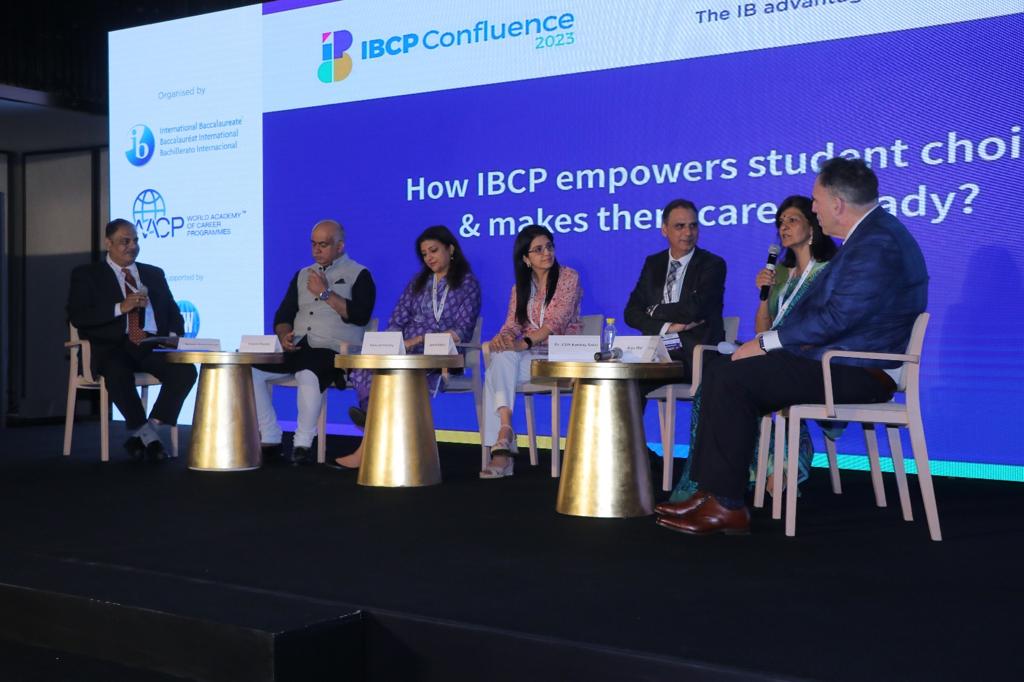
.jpeg)
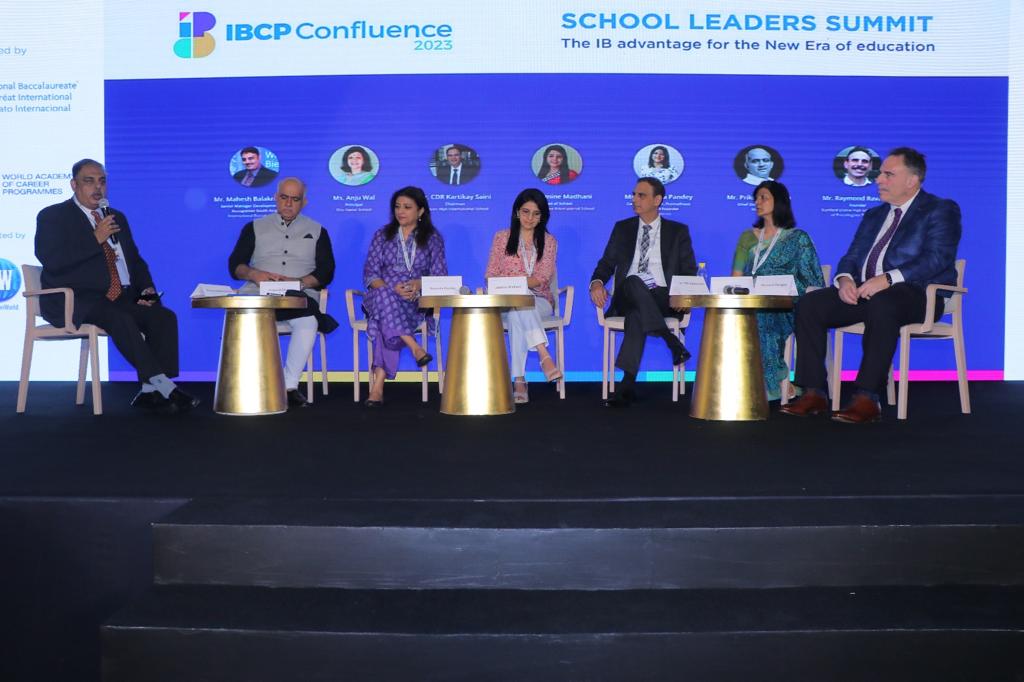

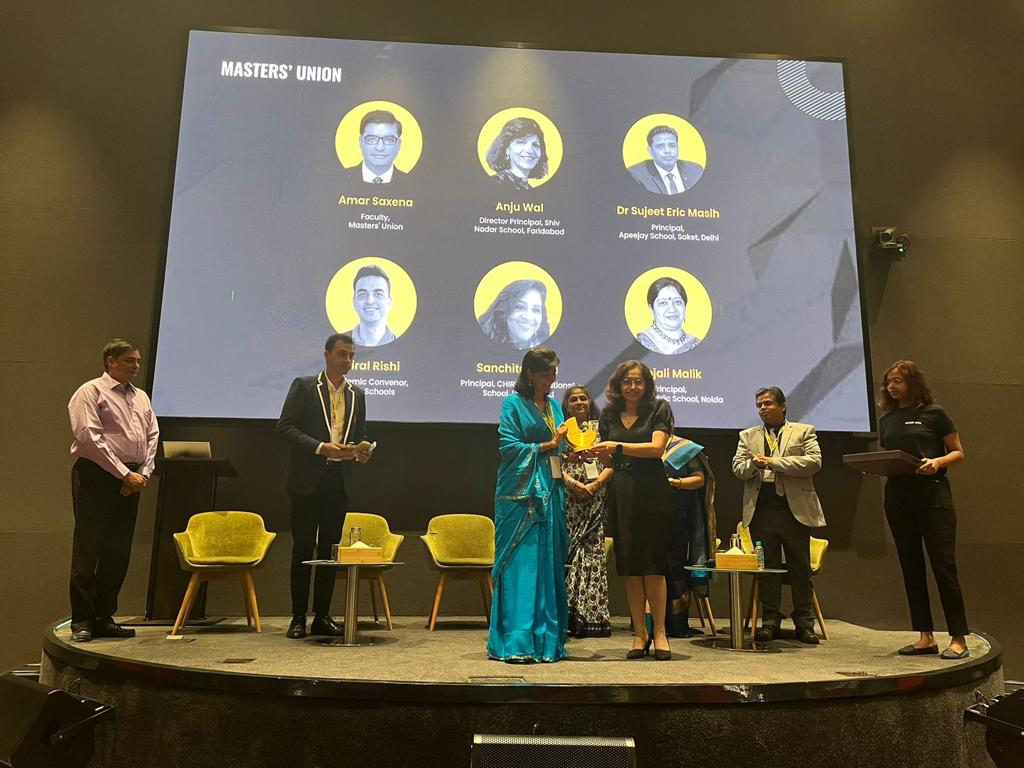
.jpeg)
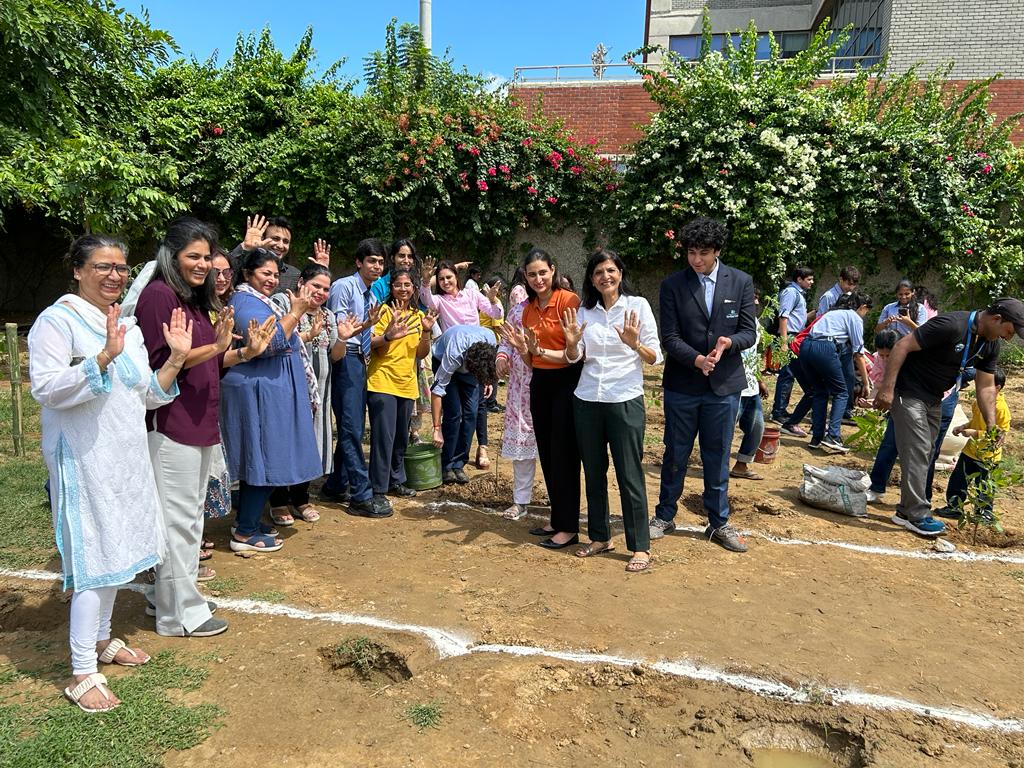
 - Copy.jpeg)
.jpeg)
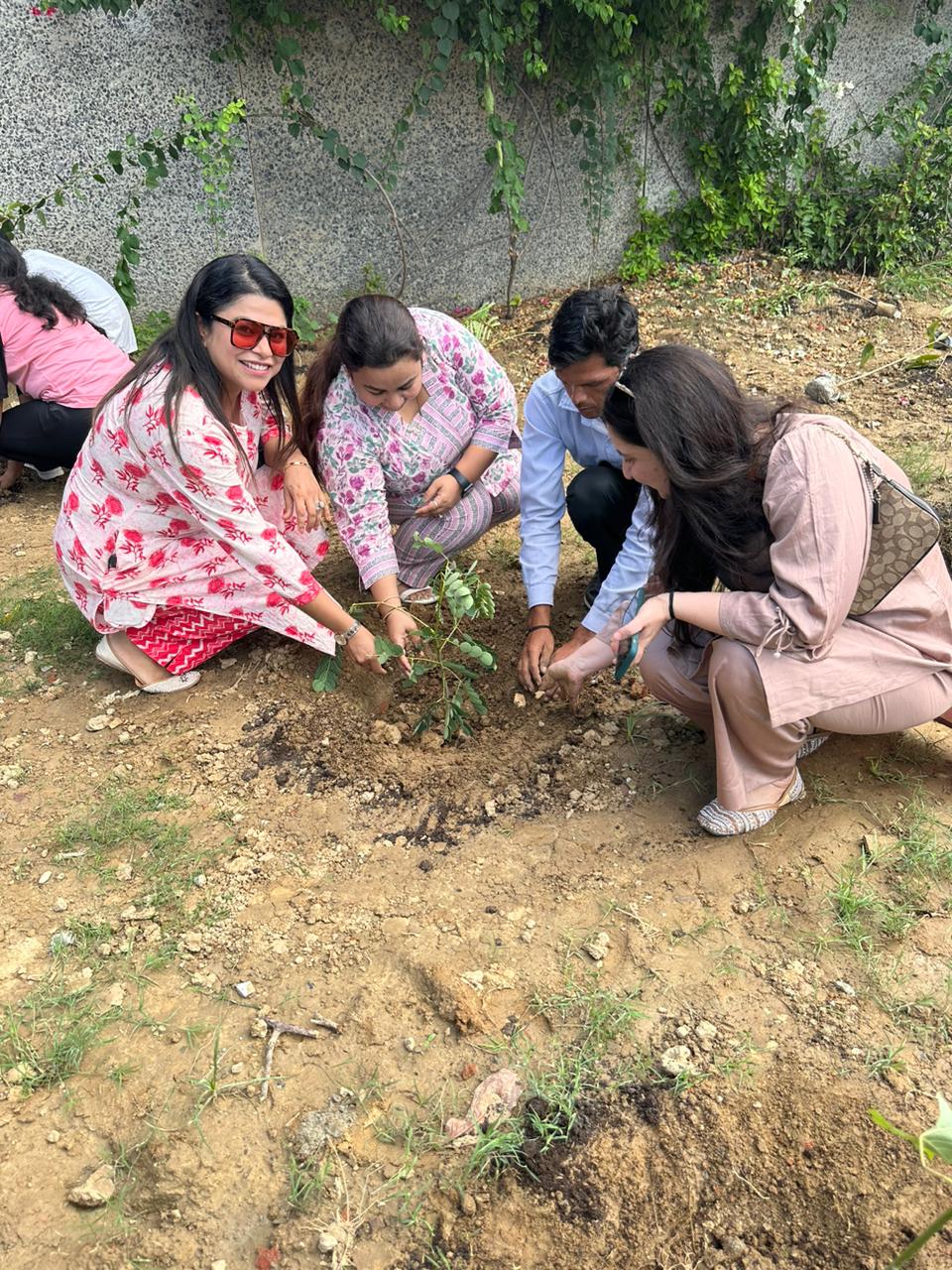
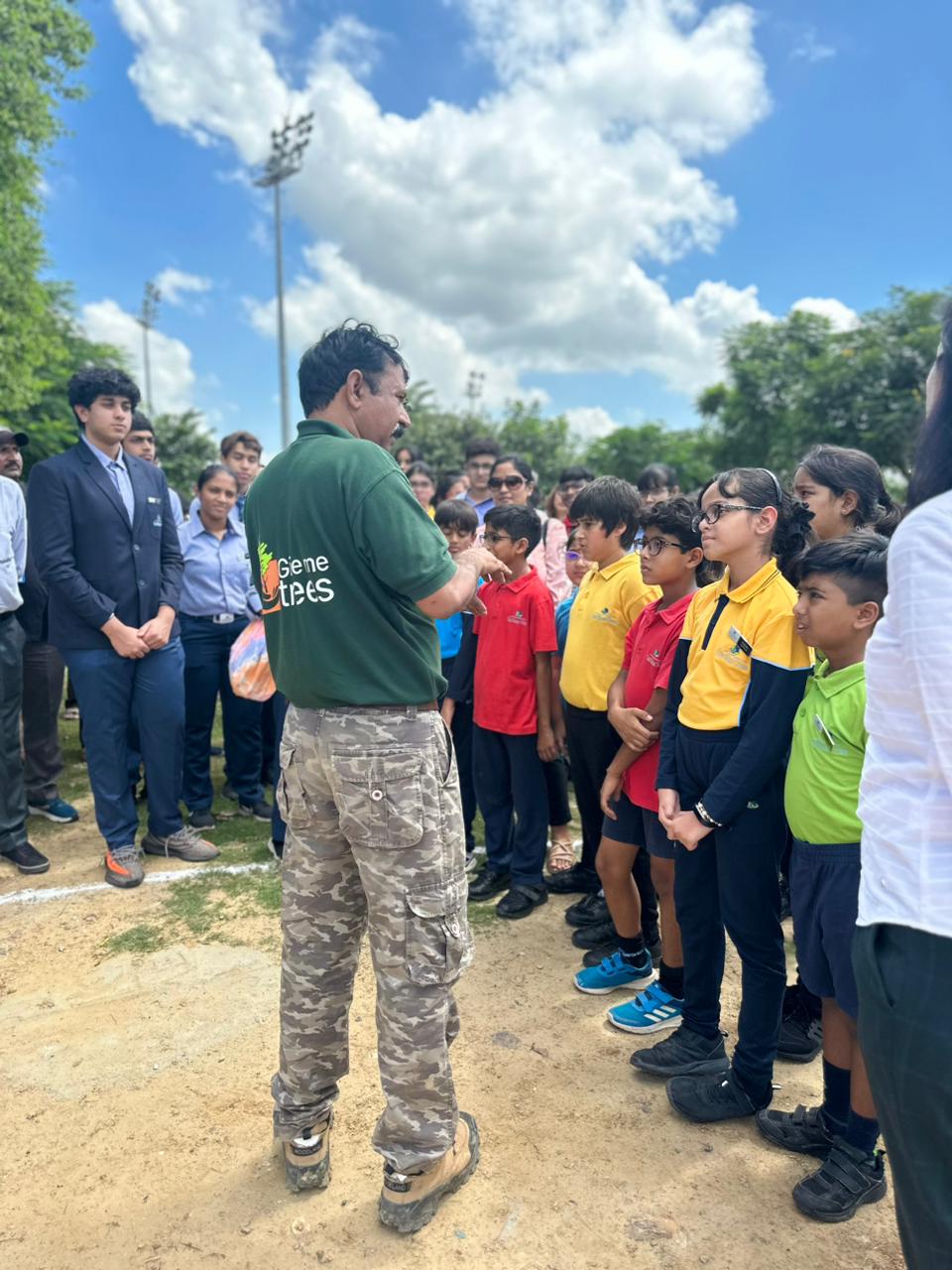
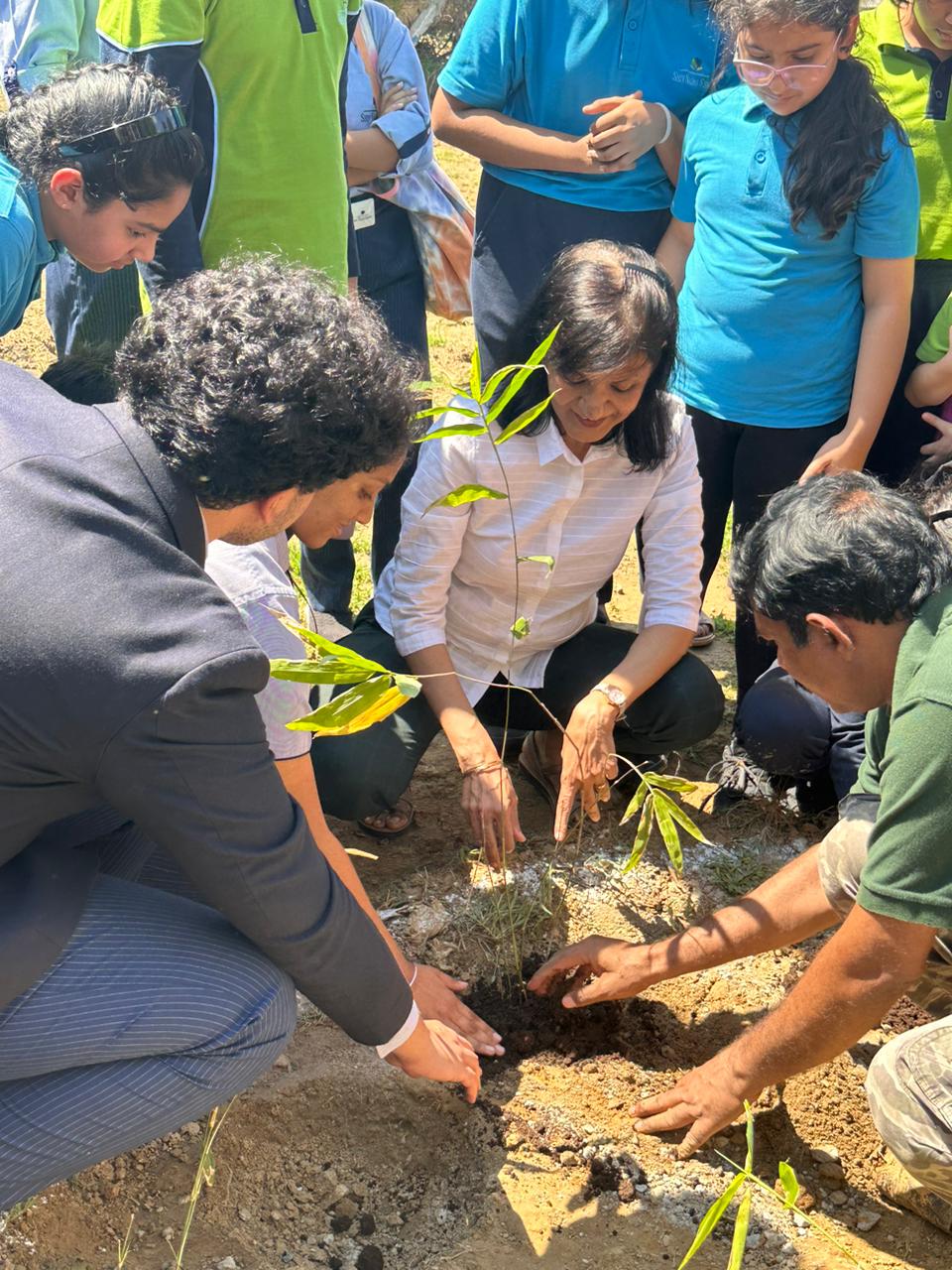
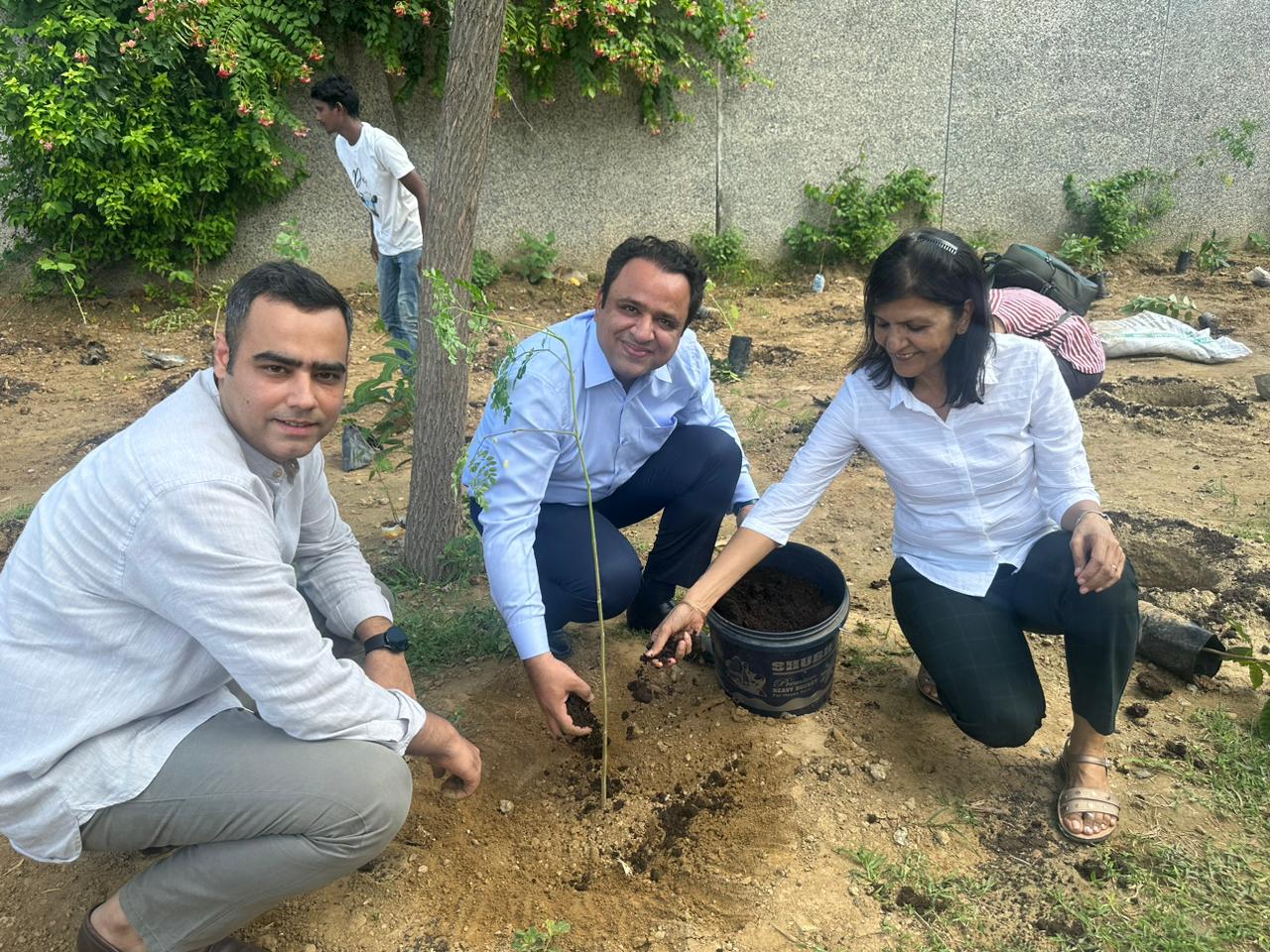
.jpeg)
